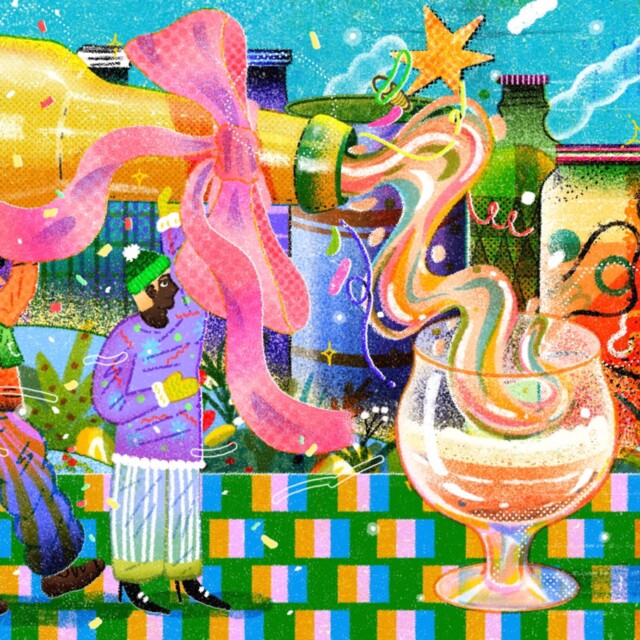The craft beer world is filled with passionate opinions — and nowhere more so than among those who wield notebooks and pens. Ask any three beer writers to name the country’s single best brewery, and you’re likely to get over a dozen well-argued responses, from the totally obvious to the truly arcane.
For this year’s annual survey, we asked 30 beer pros of various stripes — beer writers, educators, historians, community leaders, authors, and just one cartoonist — to name the best breweries in the country right now. Their choices run the gamut, from long-term favorites to hot new arrivals, from high-volume producers to neighborhood taprooms.
These picks echo some of the big changes that are currently ripping through the beer world. As with hard seltzer, glitter beer, and brut IPA, the beer world moves in cycles and trends. Some of what used to be celebrated no longer holds the same cachet, while once famous names might not have the same status they did a few years ago. This month’s “year in beer” report from the Brewers Association shows that the total number of 9,736 small and independent breweries in the U.S. at the end of 2024 is a plateau at best, with 399 brewery closures slightly outpacing this year’s 335 new openings. The days of comparing craft brewers to rock stars and constant double-digit craft brewery growth are clearly behind us.
But that doesn’t mean it’s all gloom and doom. As you’ll see from this list, there are inspired — and inspiring — beer makers all around the country, in all sizes, serving their communities with one great beer after another. Order a pint from your own favorite, pore over this list, and maybe you’ll come up with a few strong opinions of your own.
Alulu Brewery and Pub
Chicago, Ill.
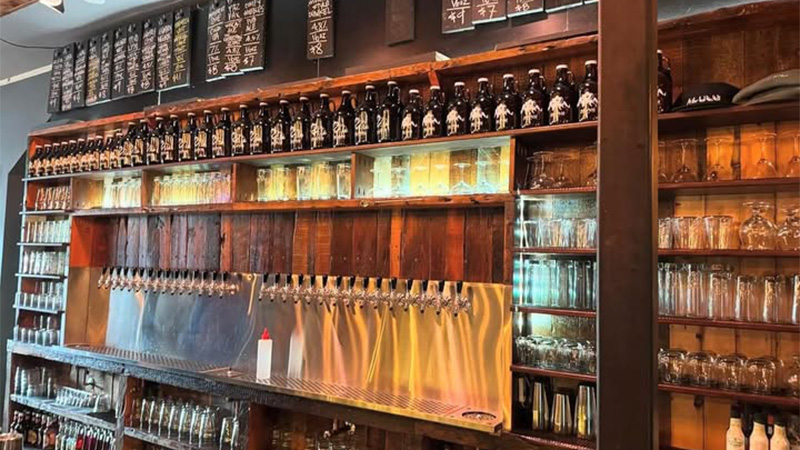
“Alulu is a place where compassion thrives, representing authentic diversity, equity, and inclusion at every level. Head Brewer Jason James is Chicago’s only Black head brewer, always brewing up a diverse selection of delicious, well-crafted beers, ciders, and seltzers. The staff reflects true diversity across race, ethnicity, gender, and sexual orientation, making every customer feel seen and welcomed. Alulu’s customer base is just as diverse as its offerings, creating a vibrant and inclusive atmosphere where people from all backgrounds gather to enjoy great craft beer and conversation. Their food menu is also a reflection of this inclusivity, featuring a mix of American, Peruvian, and German dishes, to name a few, that pair perfectly with the beautiful craft brews. Alulu is truly a beacon of community, culture, and craft brewing.” —Mickey Bryant, founder & president of Black and Brew Chicago, Chicago, Ill.
Art History Brewing
Geneva, Ill.
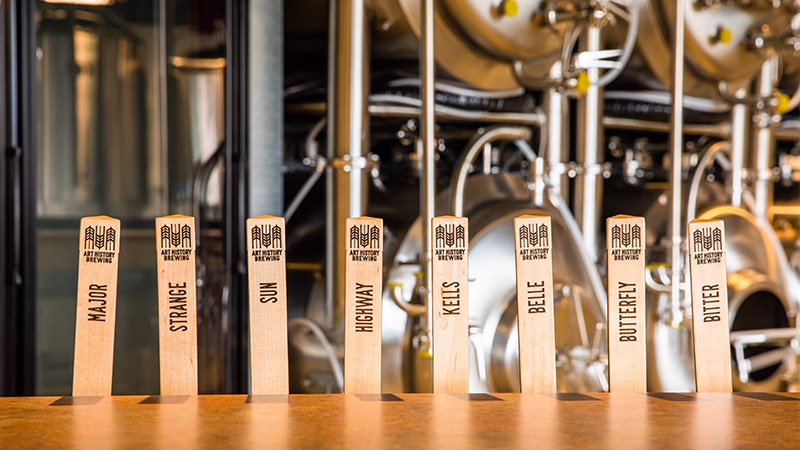
“Art History Brewing is a group of excellent humans brewing world-class beers. Despite opening up in March of 2020, they quickly were selling so much beer they had to pull back on distribution until they could expand capacity. Geneva Lager Works, their new production facility, soon became a reality, and brewers Carolyn Stephens and Greg Browne got cans back on shelves throughout Chicagoland. Owners Cindy and Tom Rau say they’re on track to double capacity again in 2025, and I can see why. I have had quite a few beers during my 14 years in the beer industry, and never a bad beer from Art History. While they do have a lager-forward focus, you can find everything from Rauchbiers to DDH double IPAs and Belgian saisons on their roster. They also make one of my all-time favorite beers, Wenceslas, a dark Czech-style lager paying homage to Wenceslas the first, Duke of Bohemia and star of the classic Christmas ‘Carol, Good King Wenceslas.’” —Virginia Thomas, craft beer specialist at Beer On the Wall, Park Ridge, Ill.
August Schell Brewing Co.
New Ulm, Minn.
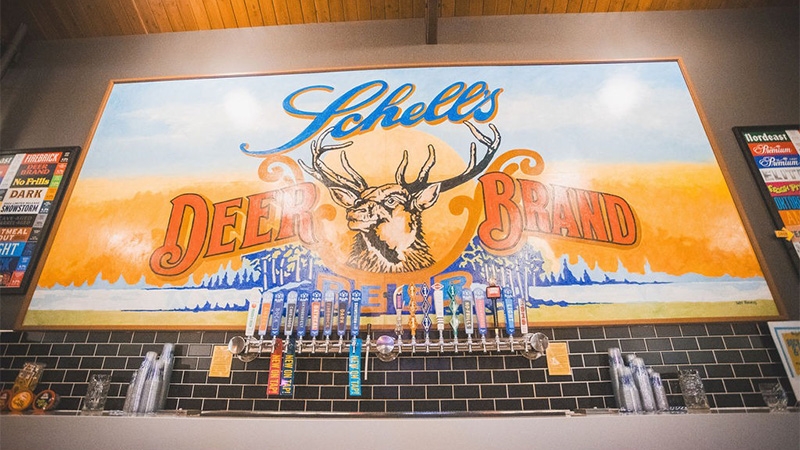
“August Schell Brewing Company opened in 1860. German-speaking immigrants Theresa and August Schell built the brewhouse and an attached family house on a bluff above the Cottonwood River on the southern edge of New Ulm. Today, the Schells’ descendants are still making beer there. The brewhouse is jammed with the people, equipment, and supplies needed to make beer for two companies: August Schell Brewing and, since 2002, Grain Belt, an old Minnesota brand. There’s a tiny parking lot — when the hordes descend on festival days, buses shuttle them up and down the hill that is Schell’s Road. A small 19th-century house serves as corporate HQ. Adjacent to it is a mansion built by August and Theresa in the 1880s. Another building houses the gift shop and a capacious bierhalle. In summer, a biergarten takes center stage, more or less where the Schells planted the original garden. As for the beers, on the Schell side are a light, of course, Vienna lager, German pilsner, a pale ale, and seasonals that include dark German lager and Kölsch. The Grain Belt lineup includes the original Grain Belt lager and the delicious Grain Belt Nordeast, created by brewmaster David Berg, his homage to a Minneapolis neighborhood of the same name. One of the best beers I’ve ever consumed was a Schell seasonal brewed with Minnesota rye. The silver label featured a full-horned stag. Alas, I don’t remember the name — I was too busy being overwhelmed.” —Maureen Ogle, historian and author of “Ambitious Brew: A History of American Beer,” Ames, Iowa
Blue Jay Brewing
St. Louis, Mo.
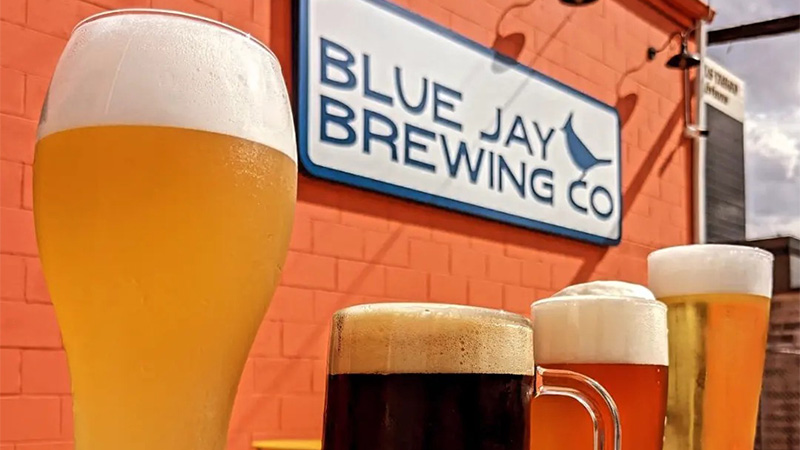
“For me, 2024 was quite a year. I visited 35 new breweries and enjoyed a wide variety of beer styles. However, sometimes it feels good to come home to a classic like a quality lager, and in St. Louis, that’s pretty easy to do with newcomer Blue Jay Brewing. Blue Jay Brewing, which just celebrated its first anniversary, is familiar with quality lagers; with roughly eight beers on tap, seven are devoted to lagers, with the only exception being Okay!, a Bavarian-style hefeweizen. There is something special about sitting at the bar and talking with someone directly involved with brewing the beer you are drinking. Sometimes, if you are lucky, you can catch owner and brewer Jason Thomspon behind the bar, who is always happy to talk about his beers. A couple of my favorite beers are LL Blue Jay, a summer session lager brewed with their friends at Little Lager, a lager-focused bar in St. Louis; and Therese, a German-style märzen. If you are a fan of crisp and clean lagers, you can’t go wrong with anything on tap.” —Brian Margiotta, writer, St. Louis, Mo.
Bozeman Brewing Co.
Bozeman, Mont.
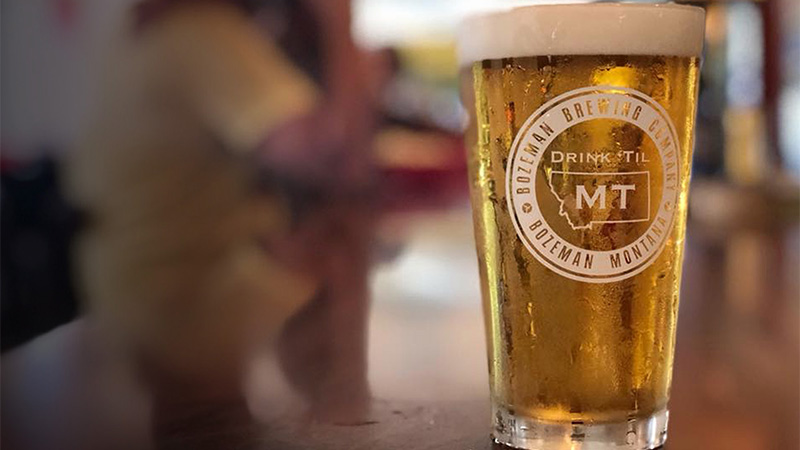
“I lived in Montana for nearly a decade, and during that time, one brewery always stood out: Bozeman Brewing Company. Since its founding in 2001, the brewery affectionately known as ‘The Bozone’ by locals has produced some of the best award-winning beers in the Intermountain West. Among my all-time favorites are Blackmore Lager, a seasonal schwarzbier, and the always-available Gallatin Pale Ale, named after the nearby Gallatin River. Their diverse beer lineup features a variety of styles on tap or available in cans and bottles, ranging from trendy hazy IPAs to classic lagers and porters, including the beer that started it all for them, Bozone Amber. Where they are really pushing boundaries, though, is in the sour beer department. Beneath their production brewery and small tasting room, over 285 wine and whiskey barrels have been fermenting and aging, resulting in some of the most unique, innovative, and complex small-batch sour beers in the Big Sky State. As of now, nearly 27 different sour beer iterations are available in their tasting room. I’m not sure many other breweries can boast such a claim. If you are ever in Bozeman, I highly recommend paying them a visit.” —Jesse Bussard, writer and former executive director of the Craft Maltsters Guild, Todd, Pa.
Cohesion Brewing Co.
Denver, Colo.
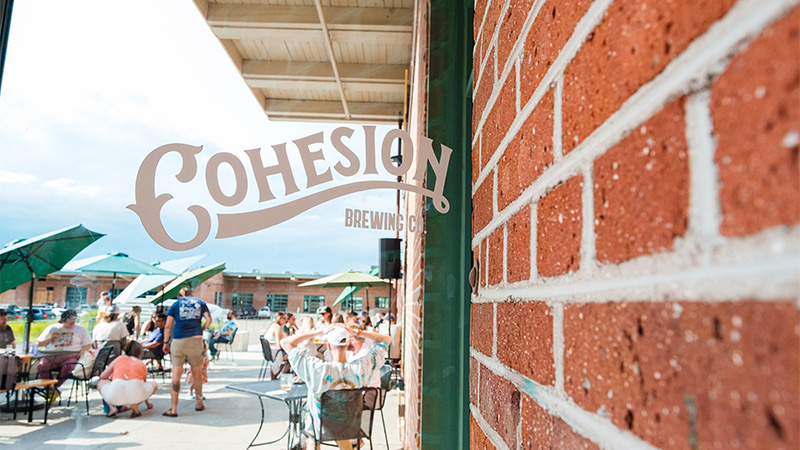
“My favorite breweries combine fantastic beer with a well-curated ambiance, and Cohesion in Denver does both especially well. I’ve been on a big lager kick for a couple of years now, and this brewery is a great place to sample Czech-style lager as it’s supposed to be enjoyed. Dimpled mugs line the bar, and beer is poured from shiny Lukr taps. The deliciously biscuity Světlý Ležák is brewed using a decoction mash, with a custom-created base malt from a Colorado malthouse, along with Czech hops. And in this bright and airy American taproom, there’s a cozy corner with wood paneling and wall lamps. Sitting there with a classic hladinka pour transports me to Czechia.” —Hollie Stephens, freelance beverage writer, Albuquerque, N.M.
Columbus Brewing Company
Columbus, Ohio
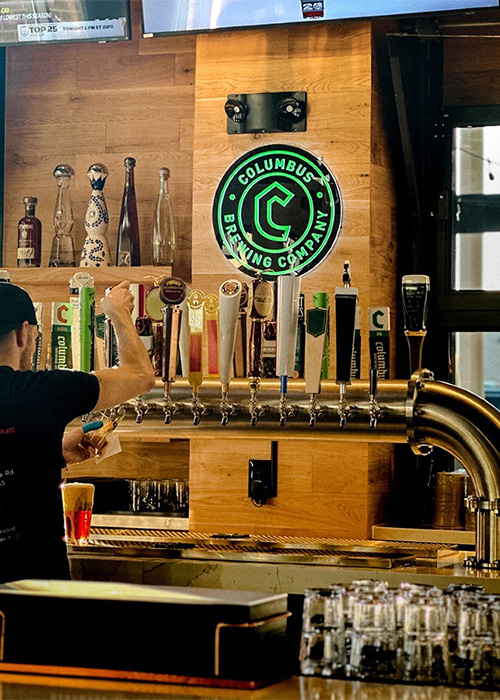
“After nearly a quarter-century of living in New York City, we left this summer to buy a house in Columbus and be closer to family. Visiting beer stores was initially pretty disorienting. Who were all these breweries? I knew the Northeast inside and out, but many of the breweries from Ohio and the Midwest rarely appeared in my favorite Brooklyn beer stores. So I drank a bunch of IPAs, gravitating toward Columbus Brewing, quite possibly the best IPA brewery that few people outside of Ohio know about. That’s because Columbus Brewing, which was founded in 1988, only sells beer in-state. The double IPA Bodhi delivers a golden tropical punch, while the dank and citrusy IPA is a fridge staple sold for around $20 per 15-pack. The brewery’s bright and spacious beer hall is a showcase for loads of lupulin rarities, from fresh-hop IPAs to hazy IPAs featuring experimental hop varieties. CBC has fast become one of my favorite breweries in town.” —Joshua M. Bernstein, journalist and author of “The Complete Beer Course,” Columbus, Ohio
Counter Weight Brewing
Cheshire, Conn.
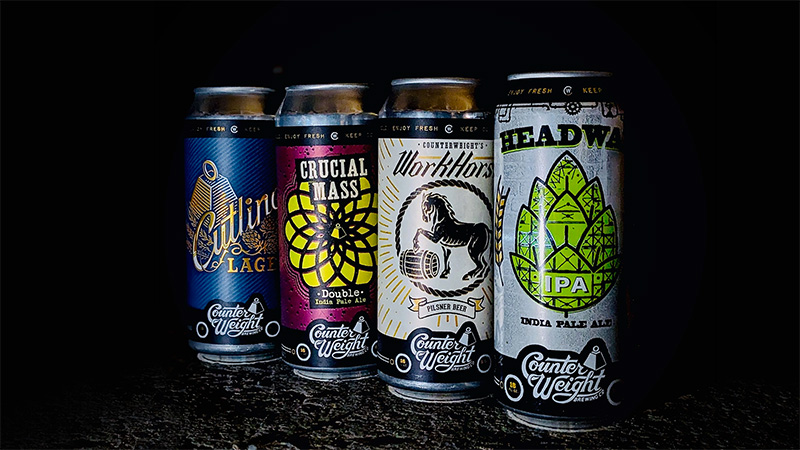
“Outside of my home state, Counter Weight Brewing is virtually unknown, but here in Connecticut, Counter Weight’s stellar beers are everywhere. Their flagship IPA is Headway, a staple in the Nutmeg State and a universally beloved hazy — we are in New England, after all. Headway is a full-bodied, super-juicy, 6.5-percent-ABV New England IPA that, to me, is perfection. What’s also staggering is its price point: a 16-ounce can 4-pack of Headway will only set you back around $11, or sometimes even less. Headway is poured on draft everywhere as well and is my go-to when out. Counter Weight is also well known for its lagers; their Workhorse pilsner is my preferred order when getting wings at the famous J. Timothy’s Taverne and their small-batch rauchbock was one of my favorite beers of the year. Counter Weight’s tasting room is cavernous but inviting; their tasting room staff is friendly and knowledgeable. Counter Weight is one of those breweries you want to keep for yourself and at the same time tell everyone about.” —Em Sauter, founder and cartoonist, Pints and Panels, New Britain, Conn.
Earth Rider Brewery
Superior, Wis.
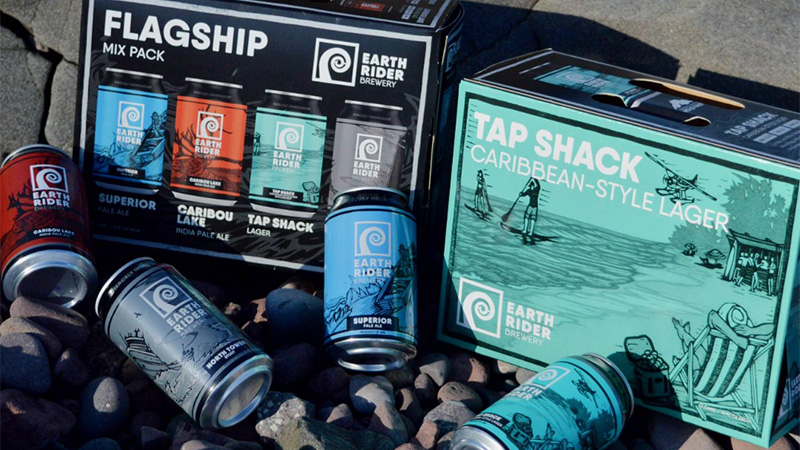
“I live in Milwaukee, Wis., a great brewing town if ever there was one, on one edge of a whole state full of amazing beer. Because it is really hard for me to play favorites in my adopted hometown, I’m going to say Earth Rider in Superior, Wis. I went to Superior and its Minnesota neighbor, Duluth, a few summers ago, and it was a delight — and my visit to Earth Rider was a big part of that. The beer is well made, with water from my very favorite Great Lake, Lake Superior. I really like both Caribou Lake IPA and the aptly named Superior Pale Ale. As a particular fan of German styles, I also like their helles and festbier. But my Earth Rider fandom isn’t just about the beer, it’s also about the space. In a place with a pretty short summer, they have both an exceedingly cozy tin-ceilinged taproom and a vast outdoor festival area that is also very enjoyable on a non-festival day. I’d go back in a heartbeat, and wish the shores of Lake Michigan where I live weren’t quite so far from those particular shores of Lake Superior.” —Jennifer Jordan, sociology professor and author of a forthcoming book on 19th-century hops and the women who grew them, Milwaukee, Wis.
Fort George Brewery & Public House
Astoria, Ore.
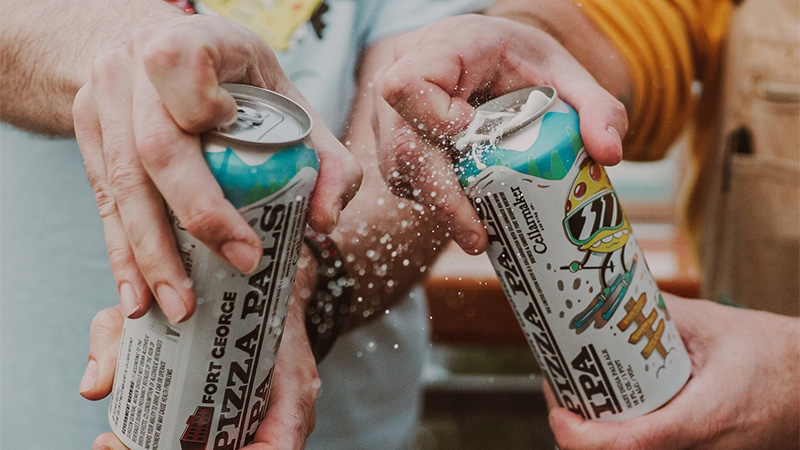
“I would be lying if I said the town of Astoria didn’t play at least a small role in my love for Fort George Brewery. Perched on a hilly area where the mighty Columbia River meets the Pacific Ocean, the views are a fine accompaniment to the brews. Any time of year is a good time to visit Fort George and all the other solid craft breweries that call Astoria home. But if you really want to take in the soul of Fort George, take a trip to Astoria during Stout Month. Every February, Fort George embraces the dark side and the region’s gloomy wintry weather with a month-long celebration of all things stout and dark. The highlight is the Festival of Dark Arts, a self-described carnival of stout, where Fort George’s Matryoshka Russian Imperial Stout and a number of its variants join a well-curated tasting of — for 2025 — 80 rare and unique stouts from around town and around the globe. Yet despite the killer lineup, the beers are only the sideshow at FODA, as ironworkers, sword swallowers, ice carvers, and other artists delight attendees. The event is so popular, tickets sell out in minutes. Can’t make it in February? Summertime also is when Fort George shines. Brewing operations have moved closer to the river, but the original brewpub and brewery, which is smack in the middle of town and takes up an entire city block, is always humming with beer fans soaking up some sun with their suds.” —Lisa Morrison, writer and chief beer goddess at Belmont Station, Portland, Ore.
Good Word Brewing
Duluth, Ga.
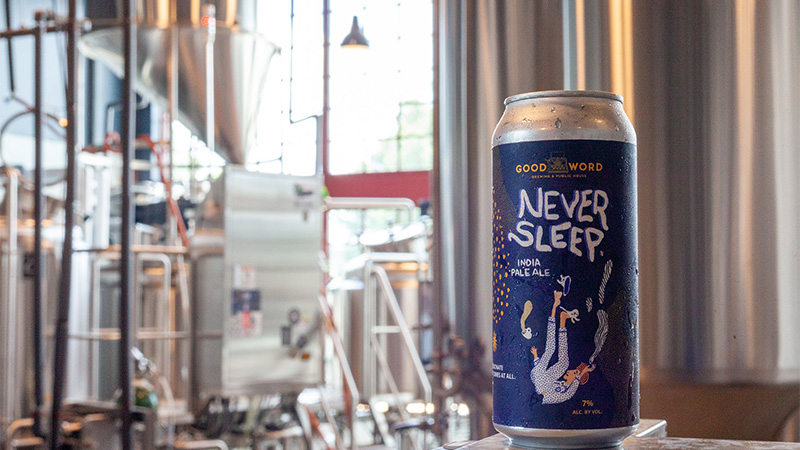
“Good Word Brewing is a shining example of how a brewery can transcend beer to build community. From almost day one, owner Todd DiMatteo has worn many hats — brewing beer, running social media, and managing the space — all while fostering an atmosphere that’s warm, inviting, and brimming with connection. Good Word excels at creating unique experiences, and its festivals are a testament to Todd’s creativity and passion. Little Beer celebrates low-ABV beers, drawing top-tier producers nationwide, while Les Bon highlights the beauty of saisons paired with oysters. Next year, Todd plans to debut a festival celebrating clear IPAs, women’s arm wrestling, and heavy metal — because why not? The beer and food at Good Word are crafted with care and intention. Their beer dinners, which often sell out, are about more than just indulgence; they’re an opportunity to bring people together. With producers from across the country and thoughtfully paired courses, these dinners are a true celebration of community and craftsmanship. Good Word isn’t just a brewery — it’s a space where friendships are forged, creativity thrives, and the simple joys of great beer and food shine through.” —Stephanie Grant, content creator and founder of The Share, a community for women and non-binary POCs, Atlanta, Ga.
Great Lakes Brewing Co.
Cleveland, Ohio
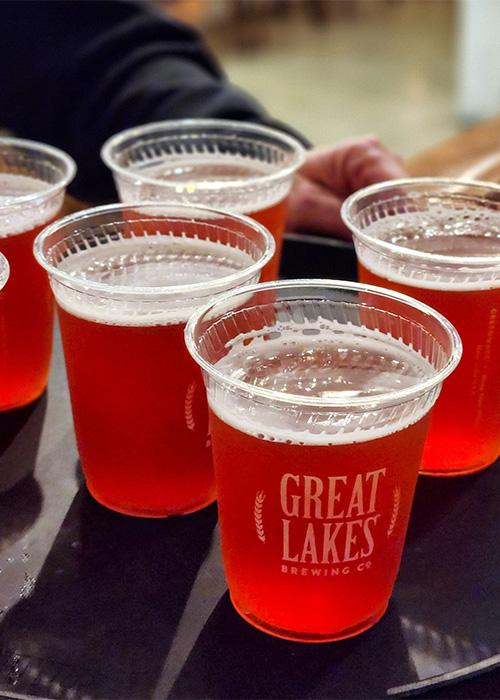
“Founded by the brothers Conway in 1988, the state’s first craft brewery has done more than simply fill the then dearth of good beer in Cleveland. It led to the resurgence of an old neighborhood, Ohio City, and burgeoning craft breweries followed in the ‘If you build it, they will come’ mantra. A draw for locals and visitors alike, the fertile cradle of brewers became a training ground for other breweries. Its Dortmunder Gold remains a unique, quaffable lager in the market, and in late October the cult classic Christmas Ale draws a line of hundreds of folks for the brewery’s annual festive First Pour party, the unofficial start of the holiday season in the region. Amazingly, despite churning out scores of beers from traditional cores to experimental brews and flavors of the day, it feels as though the vanguard of Ohio’s brewing scene becomes occasionally — and unfairly — lost in the noise of so many breweries. Great Lakes, which also waves the flag for worthy causes and offers affordable, high-quality food, has survived based on more than just tradition and history. It makes consistently high-quality, drinkable beers.” —Marc Bona, features writer covering beer for cleveland.com, Cleveland, Ohio
Green Bench Brewing
St. Petersburg, Fla.
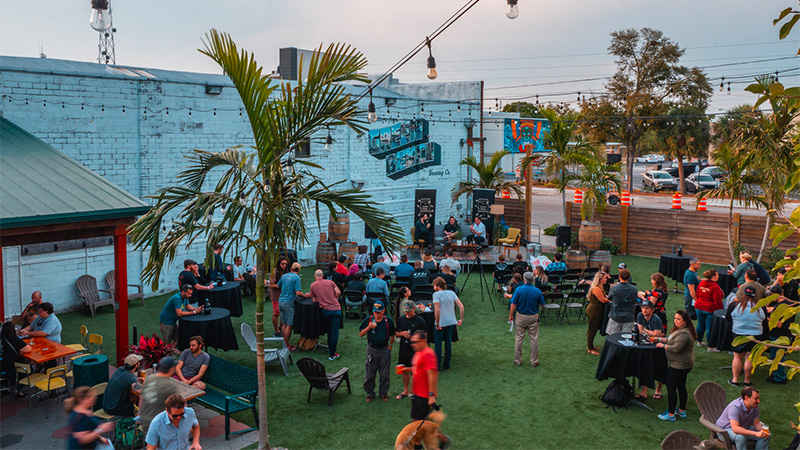
“Green Bench quietly fires on all cylinders. Lagers are on point — it’s Florida, they need to be. Ciders are no afterthought, and the mixed-culture beer program at next-door Webb’s City Cellar is impressive. And that’s to say nothing of the people: The hospitality that co-owner and head brewer Khris Johnson exudes is matched by every employee I’ve met there. Put it all together, and spending a day on the taproom’s sunny patio feels effortless. It’s a brewery that not only reflects its community, but actively works to serve it.” —Kate Bernot, lead analyst, Sightlines, Missoula, Mont.
Heirloom Rustic Ales
Tulsa, Okla.
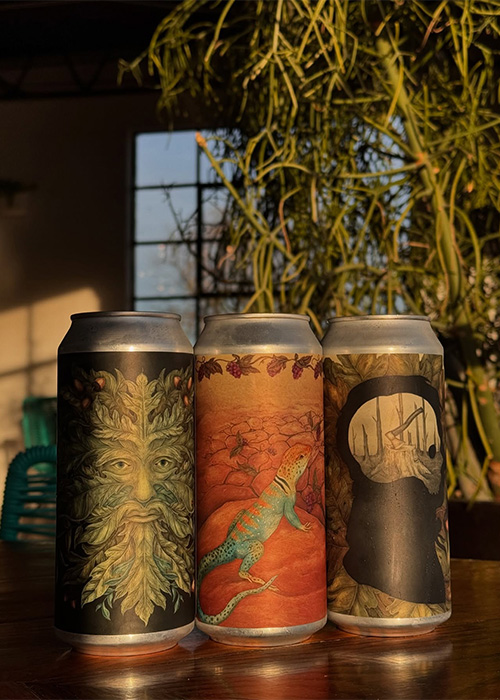
“When Prairie Artisan Ales was in Tulsa, Jake Miller was brewing there alongside Chase Healey. Then he spun off and did his own thing, Heirloom Rustic Ales, focusing on things like local grain, conservation, and ancient types of grain — very artisanal and small-batch. It’s a very inclusive brewery that just makes really solid, unique beer; he used to write a poem or a long description for each one. They have a small tap room, very community-focused, with amazing food. A lot of what they serve is lager, though they also have some sours. Right now they do a really good Baltic porter called Frozen Bloom — it’s high-ABV, but it doesn’t drink like it, just very smooth and roasty, with a velvety body. It’s perfect for the holiday season.” —Brian Welzbacher, author of “Oklahoma Beer: A Handcrafted History,” Tulsa, Okla.
Jester King
Austin, Texas
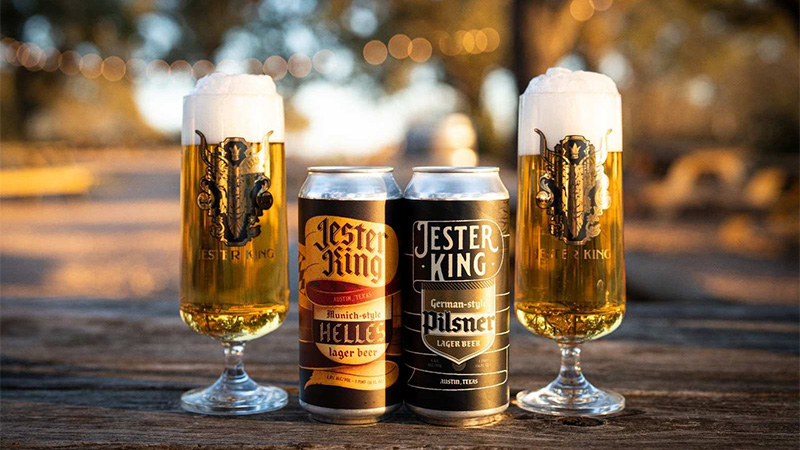
“As a beer writer, I’m often asked to name my best and favorite beers and breweries. I find this tricky because I’m a great believer in diversity of style and the power of the moment — the magical beer-drinking experiences where all is exactly as it should be, the snapshots of perfection all beer lovers chase. Jester King is a place, and a brewery, that knows all about feeding those moments. My Sundays are often spent relaxing on their expansive farm in the heart of the Texas Hill Country, enjoying live country music and sipping happily on its latest creative endeavor whose quality never disappoints, while occasionally petting a baby goat or two. Heaven. But it was on a drizzly evening in southwest London that their ability to capture perfection really hit. Cracking open a 2017 Spon 1 Three Year Blend at our local bottle share and inhaling the vivid, specific aroma of Hill Country grasses and wildflowers and tasting our delicately flinty terroir mingling with Jester King’s signature funk immediately transported me home, cinching how Jester King has become a worldwide sensation.” —Ruvani de Silva, Michael Jackson Beer Writer of the Year 2024, Austin, Texas
Kros Strain Brewing
Omaha, Neb.
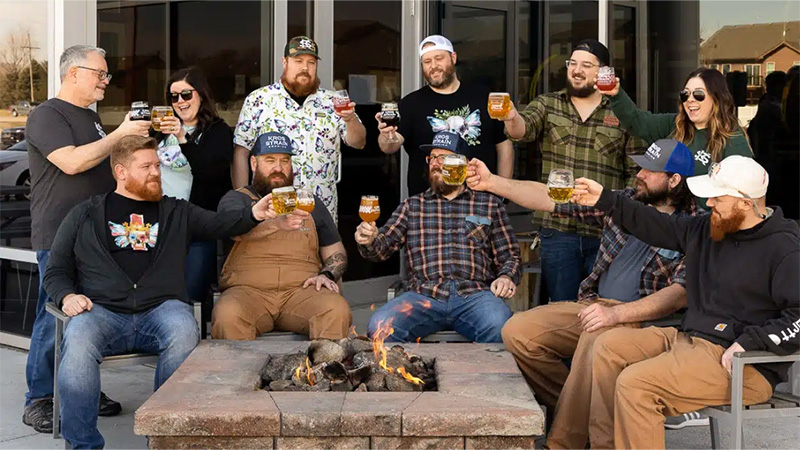
“Bobby Kros and his team at Kros Strain in suburban Omaha are making some of the best beer in the country right now, and they’re doing it in a range of styles. Kros Strain made our magazine’s annual Best 20 Beers list — based on blind tasting, winnowed down from thousands — in three of the past four years. That alone was unprecedented, for us, but it gets better: Each of those three beers was in a totally different style. In 2021, Batch 625 was one of the most sublime saisons I’ve ever tasted, and I try to taste them all. Last year, it was an incredibly refined hazy IPA, Fairy Nectar DDH. This year, it was two versions of Barrelywine Vol. 9, one aged in port casks, the other in bourbon, and both scoring high enough to crack the final list. If you need another reason to visit Omaha, besides Runza, now you have Kros Strain.” —Joe Stange, executive editor of Craft Beer and Brewing, currently based in Bangkok, Thailand
Lesser-Known Beer Co.
Winston-Salem, N.C.
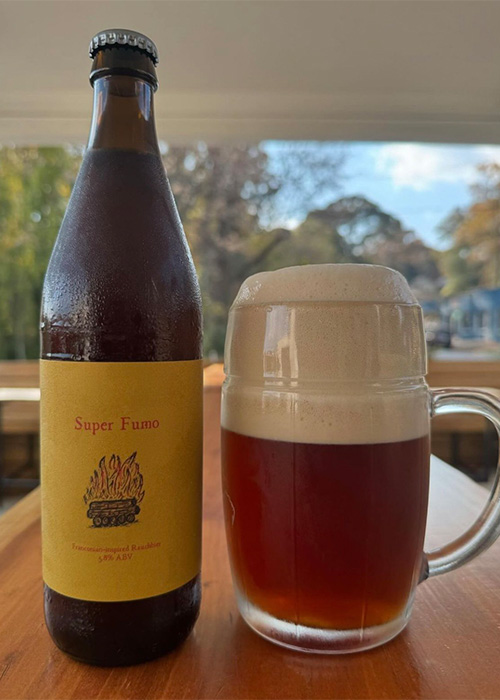
“Lesser-Known is a special place, and this is palpable from the moment that it comes into view: a former garage sitting atop a hill on a quaint street in the small town of Winston-Salem. When walking into the space, magic abounds. The intense attention to detail, care, and reverence for the communal beer-drinking experience covers the entire place and quite honestly you want to stay forever, before you’ve even received your beer. A flower vase filled with fresh cut flowers sits invitingly on the serving counter with a handwritten date. Upon closer inspection, it is the date on which their lines were cleaned, always within the last two weeks. Transparency is a major part of the fiber of Lesser Known; they publish each of their recipes publicly on Instagram and have them neatly handwritten on cardboard in the taproom. They focus on traditional beer styles, four to five beers max, that are each not only near-perfect, true-to-style representations, but also brewed with a deep knowledge of the cultural and geographic nuances of the place where the beer has been brewed. Head Brewer Ryan Gramlich will not brew a style unless he has visited its origin. This isn’t done out of pretension — he truly wants to gain as much of an understanding about the people, the terroir, and the customs that have shaped that beer style over time. Their extreme attention to detail and brewing technique shows in the beautiful beers, poured right from the serving tank and served through a tiny wooden window. Specialized glassware is used for each pour, and beer is consumed sitting at small communal tables. On the table sits a small box meant to store cell phones that can be put away in favor of authentic conversation. At Lesser-Known, they create a true home away from home. As people, co-owners Will Loring and Ryan Gramlich are true advocates for helping to expose the beauty of beer and beer service to the masses. They have been huge advocates of beer education, which is critical both inside of the tap room with staff, as well as to the public for continuing to have an invigorated and informed customer base. From their Oktoberfest celebration, to the formation of beer trips for customers abroad, to their first-ever beer-education-facing lager festival, they believe in exposing their customers to new things and have chosen a smaller footprint to ensure the highest amount of quality. As they have grown in popularity across the country, they have at their core remained true to serving their regulars, on the corner in Winston-Salem. To me, there is something special about that.” —LaTreace Harris, beer educator and owner of The Beery Godmother Consulting, Atlanta, Ga.
Living Häus Beer Company
Portland, Ore.

“Portland is one of the best beer cities in the country, and it’s thanks to places like Living Häus that make it so. Good people make good beer, and co-owners Mat Sandoval and Conrad Andrus are some of the nicest, most generous, and talented brewers in the game. The beer industry — not to mention the world in general — feels a little drab right now, and Living Häus’ collection of clean lagers and collaboration brews feels like a bright spot in the dim. Plus, their approach to naming beers after significant people in their lives is honestly just delightful, and occasionally hilarious — shoutout to the bail bond king of San Diego. Finally, they make a grodziskie. That alone grants them icon status.” —Beth Demmon, freelance writer and author of “The Beer Lover’s Guide to Cider,” San Diego, Calif.
New Glarus Brewing Co.
New Glarus, Wis.
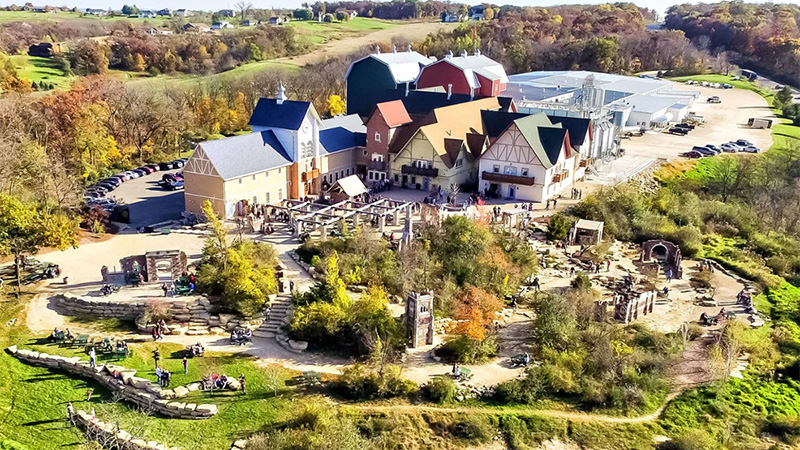
“There are many outstanding breweries in the Midwest, more than you know, but like you, I find it hard to pay much attention to them because there’s also New Glarus. I probably don’t need to show my work in selecting New Glarus as brewery of the year to a national beer audience, but what the heck. This year was a tour de force of tradbeers for New Glarus. It brought its Pilsner — a beer introduced in 2023, and so good it doesn’t need a cute animal name — to its year-round lineup. It brought back Gyrator Doppel, an exceptional doppelbock with an exceptional backstory rooted in brewmaster Dan Carey’s stewardship of ingredient sourcing. It rolled out its barleywine for the first time in 12 years. And Kid Kölsch, a kinder, softer, open-fermented Kölsch. And the usual banger Staghorn Oktoberfest in fall, and Two Women lager and Moon Man pale ale all year. Not a hazy IPA to be found, but a great black IPA, Black Top, if you like trends. The cherry on top: This fall, New Glarus announced an expansion geared toward visitors that, when complete in 2026, will make pilgrimages to its charming, Swiss-themed namesake village in the scenic hills of southwestern Wisconsin all the more appealing. Start your planning now.” —Chris Drosner, beer columnist for the Wisconsin State Journal, executive editor of Milwaukee Magazine, news director for Badger Beer Report, Milwaukee, Wis.
Other Half Brewing D.C.
Washington, D.C.
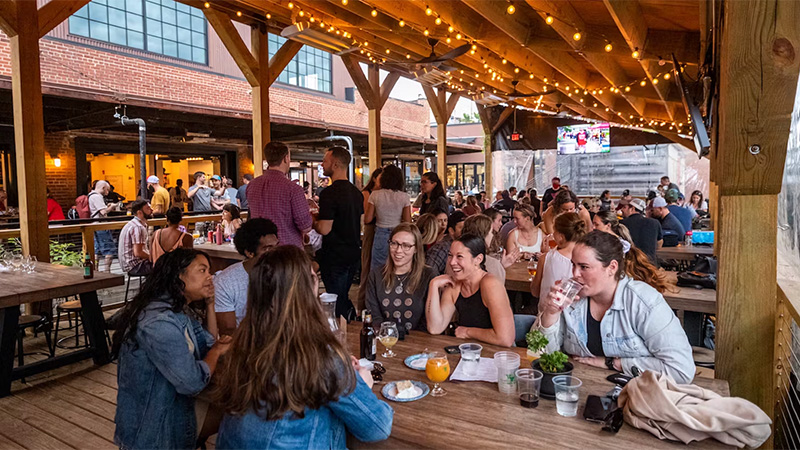
“Other Half D.C. is a great brewery for drafting, and drinking drafts: I drafted a slew of articles here with great lager next to my notebook. It’s a place to swap secrets, like which brewers left D.C. and why, and which brewers are joining metro beer makers. The Ivy City neighborhood’s taproom is currently pouring a pilsner, Crickets, brewed with German pilsner and Vienna malts, and hopped with the New Zealand hop variety Wai-iti. In addition to the pale lager, dark lager, and taps on taps of fresh ale, there’s a Baltic porter called Ahto, brewed in collaboration with Estonia’s Põhjala Brewery. If the stamp of authenticity for Baltic porter is that it must come from the minds of Baltic peoples, consider this one stamped.” —Michael Stein, writer and president of beverage research firm Lost Lagers, Washington, D.C.
pFriem Family Brewers
Hood River, Ore.
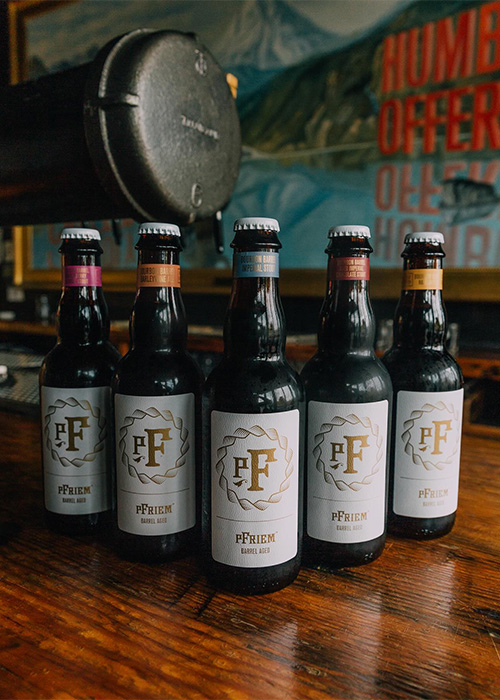
“‘Do one thing and do it well’ is generally a strategy I think more breweries should adopt; there’s a reason Orval is one of the most fantastic beers. But it’s a philosophy that pFriem Family Brewers — with its riverfront vista overlooking the windsurfing paradise of the Columbia River Gorge — manages to apply more broadly than most breweries. When the industry on the whole is suffering, 12-year-old pFriem achieved double-digit growth last year and has ample hardware to boot. The brewing team has amassed 10 GABF medals — half are gold — for beers ranging from pilsner to IPA to an amaro-barrel-aged barleywine, plus four World Beer Cup medals honoring pFriem’s mastery of styles across the brewing spectrum. In 2024 the aforementioned pilsner took gold, while a Brett-fermented apricot beer showcased how phenomenal the brewery’s fruited farmhouse ales are. But for all that heavy metal for beers both quotidian and quixotic, it’s pFriem’s Japanese Lager that most floats my boat as well as that of many beer judges, given that it earned gold at GABF and WBC. This effervescent, rice-forward lager’s floral notes of jasmine and violet — despite tiptoeing at 5 percent ABV and 15 IBUs — unleashes the most delicate tsunami of flavor that complements dishes as diverse as pFriem’s brewing program.” —Brian Yaeger, beer writer and brewfest organizer, Bend, Ore.
Pilot Brewing Company
Charlotte, N.C.
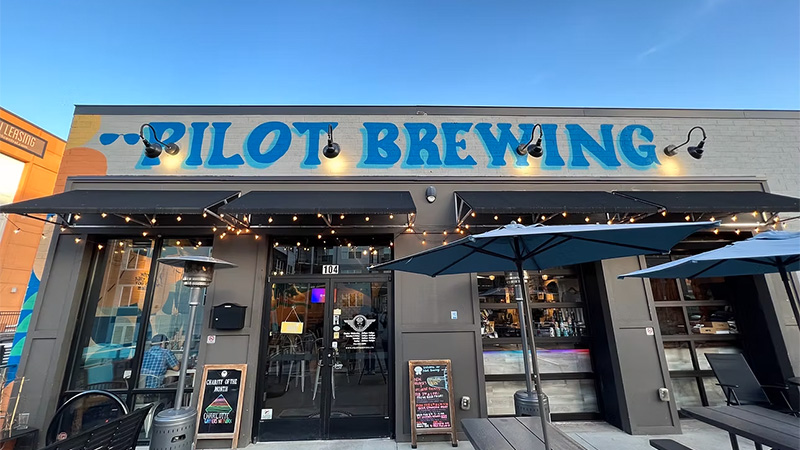
“Since opening in 2018, Pilot Brewing has been dedicated to creating award-winning beers, being passionate about beer education, and supporting its local community. A nano-brewery located in Charlotte, N.C., Pilot was opened by Advanced Cicerone Rachael Hudson and her husband, Certified Cicerone Jeff Hudson. Pilot immediately began winning awards for its beer from its first year — a rare feat — and boasts that it is Charlotte’s most award-winning beer. From being North Carolina’s Brewery of the Year to repeat wins at the Great American Beer Festival to placing in the World Beer Cup, Pilot has a proven track record of brewing high-quality beers. Pilot also collaborates with different suppliers to brew with new and innovative ingredients, such as infused malts. Beyond brewing award-winning beers, Pilot has demonstrated a commitment to providing beer education to the public and investing in their employees’ education. They not only hold beer education classes for the public, but they encourage their employees to get to know every aspect of brewing and beer, from Cicerone education to having employees work in the brewery and behind the bar. Pilot also has a Charity of the Month program and features a different charity each month. My favorite Pilot beer is their Sea Bird Southeastern IPA, with their multiple award-winning Pub Ale being a close second.” —Jen Blair, Master Cicerone and creator of Under the Jenfluence, Atlanta, Ga.
Port City Brewing Co.
Alexandria, Va.
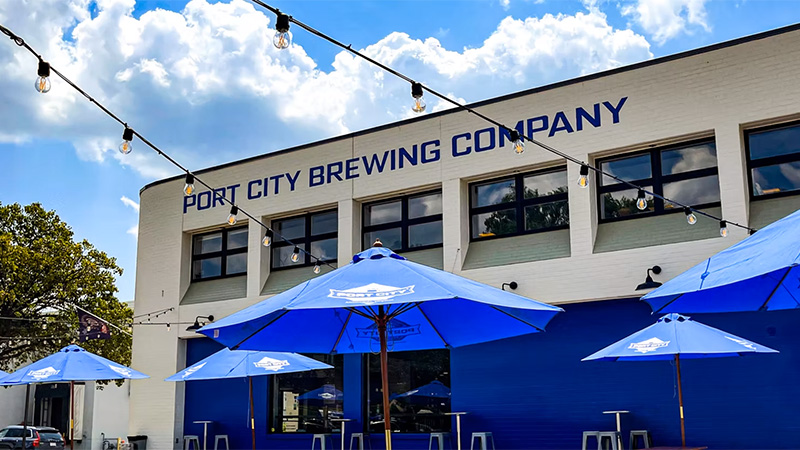
“I half joke that D.C. has two seasons, Port City Optimal Wit season and Port City Porter season. With the usual caveat that it is hard to choose just one, my vote is for this Alexandria, Va., brewery, which is also a vote for ‘beer-flavored beer.’ I’m not alone in this assessment; Port City medaled at October’s Great American Beer Festival for their Porter (gold) and Rauch Marzen (bronze). It’s always worth seeking out beers that don’t just deliver what drinkers are looking for, but exceed those expectations. Port City does this year in and year out through their flagships, high-gravity anniversary offerings released every winter, rotating lager series, and brewery-only one-offs.” —Jacob Berg, editor and co-owner at DCBeer.com, Washington, D.C.
Russian River Brewing Co.
Santa Rosa, Calif.
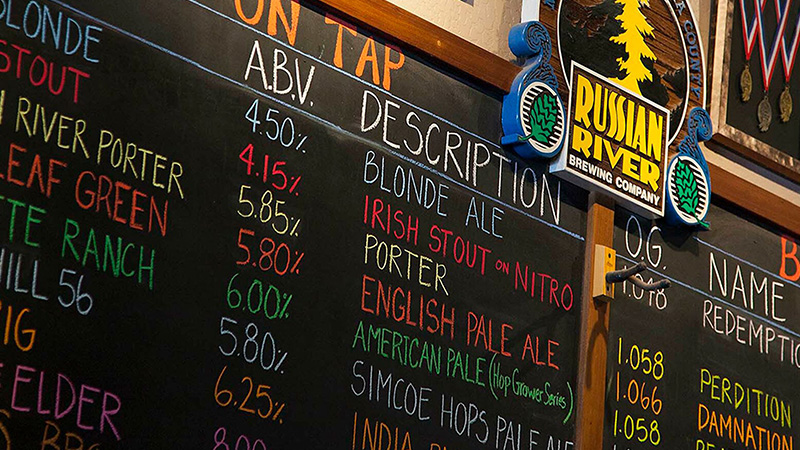
“In the SF Bay Area, we enjoy a lot of fine breweries, so a call to name the best means remembering a year of brilliant beers and initiatives from Ghost Town, Cellarmaker, Faction, BareBottle, and more. But we have to face facts. Russian River stands out year after year. In this time of ever-changing offerings for us novelty-seeking contemporary beer lovers, RRBC balances a lineup of beautifully consistent classics with an often exciting experimental program. For 20 years, walking into the original brewpub in Santa Rosa has revealed two columns on a beer chalkboard: the first for ‘clean’ beers, including Blind Pig IPA and Pliny The Elder DIPA; and the second for Belgian-inspired brews, including barrel-aged sours like Consecration and Beatification. Neither side disappoints. Consistency tempered by deliberate gradual recipe evolution by co-owner and brewmaster Vinnie Cilurzo keeps both the classics and the new brews worth a visit. We have never tasted a beer with a flaw there and we’ve been delighted again and again. It all adds up to a great brewery.” —Steve Shapiro and Gail Ann Williams, beer writers BeerbyBart.com, San Francisco, Calif.
Selvedge Brewing
Charlottesville, Va.
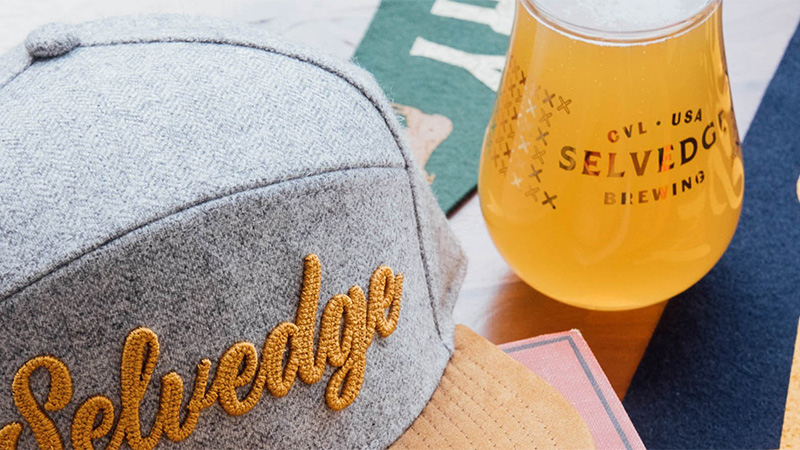
“Selvedge is one of those rare beasts that is faithful to classic styles while also making interesting modern brews, and there are not that many taprooms where, if you time your visit right, you will be able to get something from a beer engine, a Lukr tap, a regular tap, and even a stichfass. I’m an unrepentant fan of Central European-style lagers, and Selvedge hits the mark every time. Whether it’s Tabolcloth, a Franconian-style vollbier, Coat Czech, an unfiltered 12° Czech style pale lager, or Pro-seam Please, a 14° Czech style dark lager, Josh Skinner brews beer that stands up to the very best. My personal favorite, though, is Loden, a Vienna lager that harkens back to the days of Anton Dreher in terms of ingredients — with 100 percent Vienna malt and Saaz hops — as well as process, with a double-decoction mash and extensive lagering. In common with all Selvedge beers, Loden is unfiltered but bright as a button, with the clean snap of Saaz bitterness that demands another mouthful. As if all that wasn’t enough, an American brewery that manages to do superb cask ale as well is something of a unicorn. You know you have a great brewery in your neck of the woods when professional brewers hang out there. It’s not uncommon to find other Central Virginia brewers doing just that at Selvedge.” —Alistair Reece, author of “Virginia Cider: A Scrumptious History,” Gordonsville, Va.
Single Hill Brewing
Yakima, Wash.
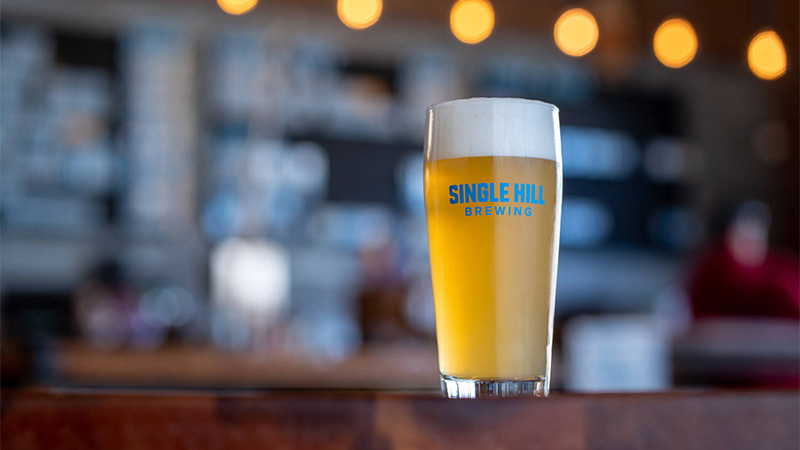
“Breweries in the Yakima Valley enjoy a distinct advantage regarding hops — the region is the source of about 75 percent of the annual U.S. hop crop. This advantage is well used by Single Hill Brewing. For example, it pumps out a continuous stream of full-time, seasonal, and one-off IPAs all year, but the brewery goes particularly hop-bonkers during the harvest, when many breweries across the Pacific Northwest focus on fresh hop beers. In 2024, Single Hill created nearly 20 of them, including several fresh hop collaborations with brewers from across the continent visiting Yakima during the harvest. The brewery now operates two taprooms, one at the brewery in Yakima and the other in Seattle’s Ballard neighborhood. Single Hill brews more than hop-forward IPAs and does an excellent job with it all. There are over 400 breweries in Washington, so it’s impossible to pick a favorite, but Single Hill Brewing is among the best.” —Kendall Jones, producer, Washington Beer Blog, Seattle, Wash.
Strangebird
Rochester, N.Y.
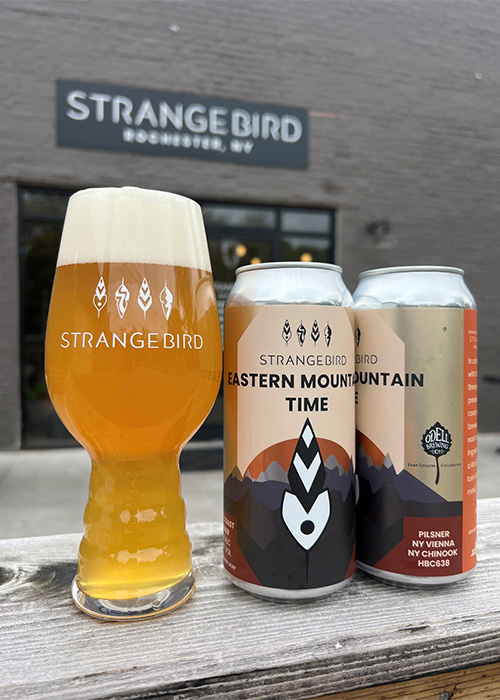
“Strangebird has long earned a strong reputation for its beer, and this year offered a tangible reminder of that success, with a bronze medal at the World Beer Cup in the ultra-competitive Juicy or Hazy Imperial IPA category for Unfettered Soul, a hazy double IPA, and another at the Great American Beer Fest in American Fruit Beer for Bird Light Yuzu, an American lager fruited with yuzu. These awards are on top of accomplishments from Strangebird’s kitchen, which has consistent recognition from local and statewide organizations as one of the best in the Empire State. The worth of a business isn’t measured solely by awards, however, but makes these fitting compliments for a brewery that’s imprinted itself as a must-visit for locals and tourists alike. Strangebird is a neighborhood hangout — walk into the taproom and you’ll see people of all ages, including families with kids, and a range of drinkers. Its menu of upscale American food relies on seasonality and the bounty of fruit, vegetables, and meat found at nearby farms. Above all else, the beer by founder and brewer Micah Krichinsky and his team never misses, and those 2024 medals don’t even include the attention to Strangebird’s wood program, led by Eric Salazar, who helped build New Belgium into a powerhouse of barrel-aged beers.” —Bryan Roth, director of insights at Sightlines, Durham, N.C.
Sunriver Brewing Co.
Sunriver, Ore.
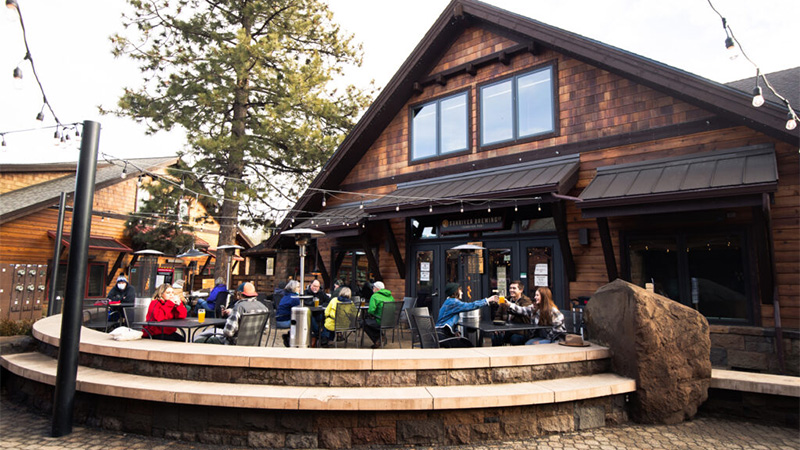
“Oregon is home to a lot of exceptional breweries; as evidence, the state had three of the eight ‘brewery of the year’ winners at this year’s Great American Beer Festival (GABF). Unfortunately, that means sometimes a place like Sunriver, in the central part of the state near Bend, gets overlooked. That’s a shame, because in recent years few breweries have been adept at brewing so many different styles of beer so well. Their core lineup has long featured a classic brewpub roster of easy-drinking styles, including a Northwest wheat ale, a couple IPAs, a milk stout, and a Mexican lager. They do these very well: Fuzztail, their wheat ale, has won about every award there is. But they also have a series of rotating IPAs that is electric in its experimentation and achievement. The brewers favor Northwestern touches, but do everything from session IPAs to hazies. They have an active barrel program, with stouts and wild ales, the latter of which are delicate and sometimes surprising. They won one of those GABF awards as well as crushing it at the Oregon Beer Awards. They should be overlooked no more.” —Jeff Alworth, author of “The Beer Bible,” Portland, Ore.
West Kill Brewing
West Kill, N.Y.
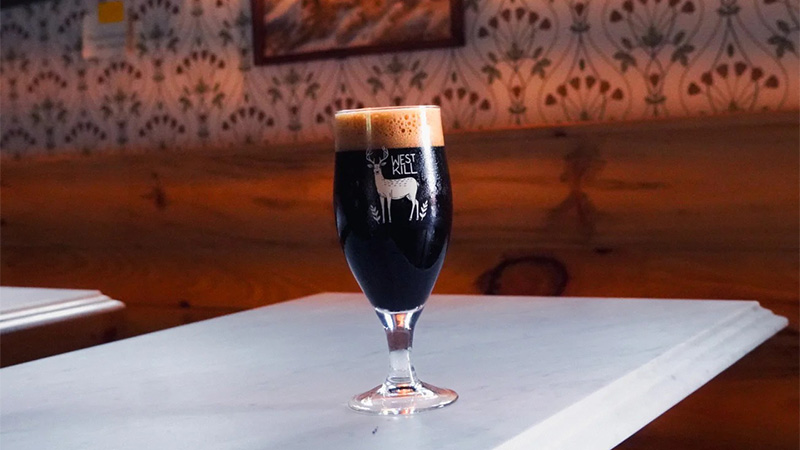
“I think upstate New York’s West Kill Brewing is doing an exceptional job both with its beer and the experience the brewery’s two locations offer, which is just continuing to grow in importance for generating brewery traffic. Under head brewer Patrick Allen, they offer a tight but diverse beer range that features incredibly well done versions of accessible styles — their Brookie corn lager is a good contender for a desert island beer — alongside styles that will keep beer geeks intrigued like dark wheat ale and red IPA, plus beers brewed with botanicals they forage around their original location. Speaking of which, that location gives guests a rustic, escape-to-the-country setting — you can even hike right to it — and their more urban taproom in Kingston feels like a cool new addition to a downtown scene, but with authenticity and a welcoming atmosphere.” —Courtney Iseman, drinks writer and author of the Beer Tarot Zine, Brooklyn, N.Y.
Wild East Brewing Company
Brooklyn, N.Y.
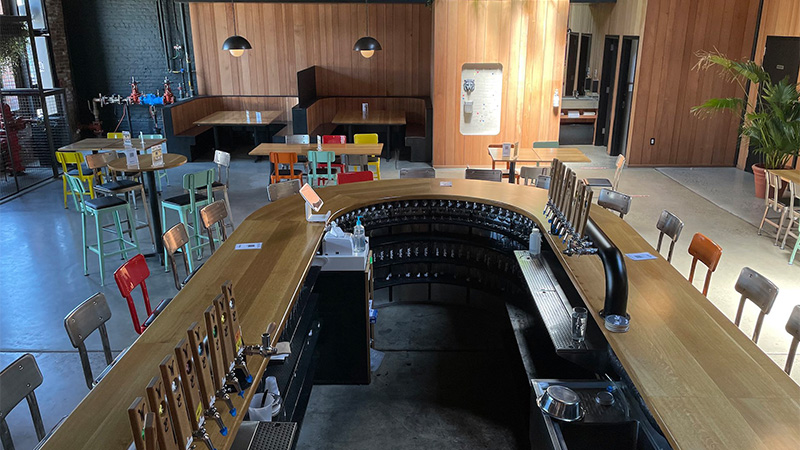
“Though just a few years old, Wild East Brewing Company has firmly established itself as a staple in the New York City brewing scene with its earnest approach to incredibly approachable brews. In particular, their traditional English-style ales and Continental-style lagers lure me into their taproom for properly served cask ales pulled from a handpump, and lagers poured from Lukr faucets. Wild East has a knack for creating full-flavored beers at low ABV levels. This helps make it incredibly easy to have several over a few hours in their laid-back space that often serves as a location for performances, markets, and classes, helping to foster a strong sense of community. Though I’m a sucker for the traditional ales and lagers, their hoppy ales and array of clean and mixed-fermentation saisons never disappoint. I’m uncertain of what their intent is regarding this array of beer they brew, but it seems less like a ‘something-for-everyone’ approach and more like ‘these are the styles we love and want to share with you.’ Wild East has begun distro in a few East Coast states, which will continue to grow in 2025.” —Kevin Kain, writer, New Rochelle, N.Y.
